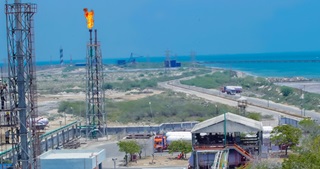Why Choose SR Grade LPG Over Refinery Grade LPG?

While both SR Grade and Refinery Grade LPG get the job done, understanding the subtle differences can make a world of difference. The significant difference between SR LPG and refinery LPG lies in the origin and processing. Here's a brief overview of how SR Grade LPG is different from Refinery Grade LPG.
SR Grade LPG Processing
SR grade LPG is directly extracted from natural gas wells. LPG is separated from natural gas naturally from the gas steam through processes like absorption or condensation. These methods involve pressurizing and cooling the natural gas stream, causing heavier hydrocarbons like propane and butane to condense out, leaving the lighter methane (the main component of natural gas) behind. To preserve the purity, SR Grade LPG undergoes minimal additional processing like light filtering or drying to remove any residual impurities.
Refinery Grade LPG Processing
Refinery Grade LPG is a byproduct of crude oil refining. The crude oil undergoes a complex process called fractional distillation. Here, the oil is heated to high temperatures in a distillation tower. Different components of the oil, with varying boiling points, rise the tower and condense at specific levels based on their volatility. LPG condenses at a specific level along with other hydrocarbons like naphtha or light condensates.
Apart from processing, some notable differences are sulfur content and hydrocarbons, which are typically high in refinery-grade LPG when compared to SR-grade LPG.
Impact on LPG Quality on Industrial Applications
| Aspect | SR Grade LPG | Refinery Grade LPG |
| Quality of End Product | Higher purity leads to a cleaner burn, improving product quality. | High sulfur content affects the end product's quality. |
| Consistency of End Product | Consistent chemical composition ensures uniform product consistency. | Variation in composition can lead to inconsistency in product quality. |
| Sulfur Content and Emissions | Lower sulfur content, resulting in fewer emissions and cleaner operations. | Higher sulfur content increases emissions and potential environmental impact. |
| Safety in Production | Reduced risk of corrosion and equipment damage due to lower sulfur. | Increased risk of corrosion and maintenance requirements due to sulfur and other impurities. |
| Production Process Efficiency | Higher efficiency and potentially lower energy costs due to cleaner burn. | Efficiency can be affected by impurities, requiring more energy and potentially increasing costs. |
| Environmental Impact | Lower environmental footprint due to clean combustion. | Greater environmental impact due to higher emissions and sulfur content. |
Straight Run (SR) Grade LPG offers various benefits that can significantly impact industrial applications, such as metal fabrication, food processing, fabric dying, ceramic baking, and chemicals. It offers a consistent, cleaner burning and potentially more cost-effective fuel option, leading to improved product quality, process efficiency, and environmental benefits.
SUPERGAS is the leading SR-grade LPG
supplier in India, having obtained a Certificate of Analysis (CoA) issued
by Bureau Veritas. We are your trusted LPG partner for industries of all types
and sizes. While prioritizing the safety of our people and the planet, we
deliver the safest, most reliable energy solutions for your industry.
Contact us at 9121177930 or send your queries to industrialsupport@supergas.com for an expert consult.